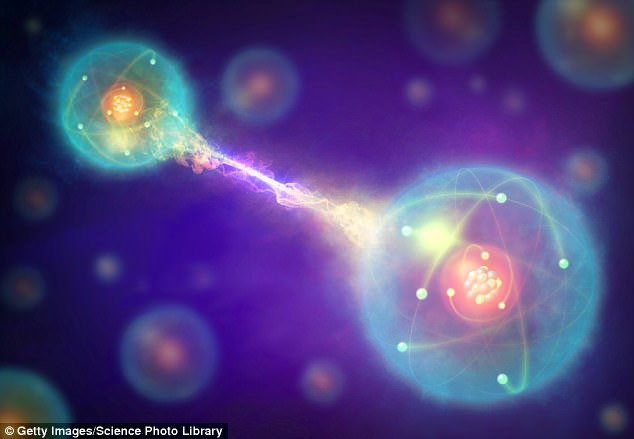
In a new paper, researchers say they’ve proved that two realities can exist at once, at least when it comes to the quantum world.
To investigate their hypothesis, researchers at the Department of Experimental Physics at the University of Innsbrück in Austria tackled one of the world’s most confounding thought experiments, called ‘Wigner’s Friend.’
The experiment, named after its progenitor, the Nobel Prize-winning physicist Eugene Wigner, was posited in 1961 and involves two people observing the same thing — in this case, a single photon.
When the photon is observed, it is displayed in either a horizontal or vertical state, but according to quantum mechanics, before that observation is made, it exists in a state of ‘superposition’ meaning that it is in both states at once — horizontal and vertical.
In Wigner’s experiment, one person in a laboratory observes the photon, sending it to either a vertical or horizontal state, while Wigner, who is outside of the laboratory, runs a simple test called an ‘interference experiment’ to prove that the photon is still in a state of superposition.
In the thought experiment, both observations, and therefore both the realities they represent, can be proven to be true simultaneously.
While Wigner’s Friend has long just been an intriguing thought experiment, advances in the field of quantum mechanics and physics have allowed researchers to put the theory to the test — and that’s exactly what Massimiliano Proietti of Heriot-Watt University in Edinburgh and colleagues have done.
Using six entangled photons – particles of light whose fates are tied together — Proietti and colleagues were able to replicate the results of Wigner’s Friend.
When observed, the photons existed in a state of polarization, but when tested using an interference experiments, it was concluded that photons still existed in a state of superposition.
The implications of the study not only confirm the long-discussed experiment, but challenge the foundation of how observations are made.
‘The scientific method relies on facts, established through repeated measurements and agreed upon universally, independently of who observed them,’ say Proietti in the paper published in pre-print journal AirXiv.
‘In quantum mechanics, the objectivity of observations is not so clear.’
However, if those facts can neither be proved right or wrong — or both — as Proietti’s work posits, then science itself may have to change.



























